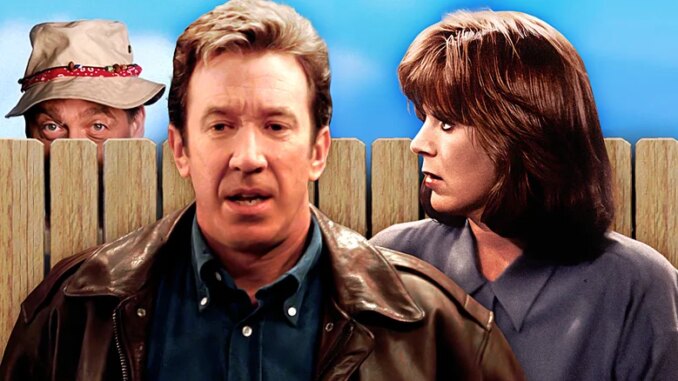
The hum of power tools, the gruff wisdom from over the fence, and the distinctive grunt of Tim "The Tool Man" Taylor were once the weekly soundtrack of millions of American homes. For eight seasons, Home Improvement was not just a sitcom; it was a cultural touchstone, a family staple, and a veritable money machine for ABC. So, when the network announced its conclusion in 1999, the prevailing narrative often centered on one man: Tim Allen, the show's star, simply wanted to move on. While Allen’s ambition was undeniably a significant factor, the “real reason” for Home Improvement’s cancellation was a more intricate tapestry woven from astronomical salaries, the changing landscape of network television, and the strategic decision to end a show on its own terms rather than suffer a slow, costly decline.
At its zenith, Home Improvement was a juggernaut. It routinely ranked among the top-rated shows, drawing upwards of 20 million viewers in its prime. This immense popularity, however, came with an equally immense price tag. As the show matured, so too did the contracts of its principal cast. By the final season, Tim Allen was reportedly earning a staggering $1.25 million per episode, making him one of the highest-paid actors in television history. Patricia Richardson, who played Jill, also commanded a hefty sum. For ABC and Disney (its parent company), maintaining this level of expenditure for a show, even a successful one, became an increasingly complex financial calculus. Every additional season represented tens of millions of dollars that could otherwise be invested in new, potentially more profitable ventures, especially as the show's ratings, while still respectable, had begun their inevitable, albeit gentle, decline from their peak.
Beyond the raw numbers, Tim Allen’s career trajectory had soared far beyond the confines of Binford Tools. During Home Improvement's run, he leveraged his sitcom fame into a highly successful film career. He lent his distinctive voice to Buzz Lightyear in Disney/Pixar's Toy Story franchise, which began in 1995 and became a global phenomenon. He donned the red suit in The Santa Clause (1994) and its sequels, solidifying his status as a box-office draw. The relentless churn of a 22-24 episode network television schedule is notoriously demanding, leaving little room for other projects. With a burgeoning movie career, the appeal of being creatively constrained by the familiar antics of Tim Taylor, no matter how beloved, began to wane. Allen openly expressed a desire for new challenges, more creative control, and the freedom that a less demanding schedule could offer.
It’s crucial to understand that the ending of Home Improvement was not a sudden axing, but rather a mutual understanding, a negotiated conclusion. ABC wasn’t pulling the plug on a failing show; they were acknowledging the reality of an expensive, long-running hit whose lead star was ready to move on. The network recognized that forcing Tim Allen to stay, or paying an even more exorbitant fee for a final season he might not have been fully invested in, was not a sustainable or beneficial path. Furthermore, there’s a strategic advantage for networks in ending a show while it’s still relatively strong. It allows for a proper farewell, retains viewer goodwill, and frees up a lucrative time slot for a new series that, crucially, comes with a much lower initial production cost.
Ultimately, the “real reason” Home Improvement concluded was a confluence of peak financial cost, the natural lifecycle of a long-running series, and Tim Allen’s well-earned desire to pivot to other endeavors. It was a strategic decision by all parties, a calculated exit from a golden goose that, while still laying eggs, had become incredibly expensive to feed. The show didn't limp off the air due to a dramatic drop in viewership or a network vendetta; it walked away on its own two feet, allowing its legacy as a beloved and highly successful sitcom to remain untarnished by the creative exhaustion or financial fatigue that can plague shows that run just one season too long. Home Improvement ended because its greatest assets had become its most compelling reasons for conclusion, allowing Tim Taylor to finally put down his tools and step into a wider world.
